Million Dollar Mermaid is a biopic about the real life swimming champ Annette Kellermann. Kellermann was discovered on the Carnival circuit, then taken throughout the world to perform various daredevil feats. Eventually, she makes it to Hollywood and gets to swap dog biscuits with Rin Tin Tin. Busby Berkeley staged the water ballet sequences, so it looks like a million bucks. But, what doesn’t anyone remember Million Dollar Mermaid?
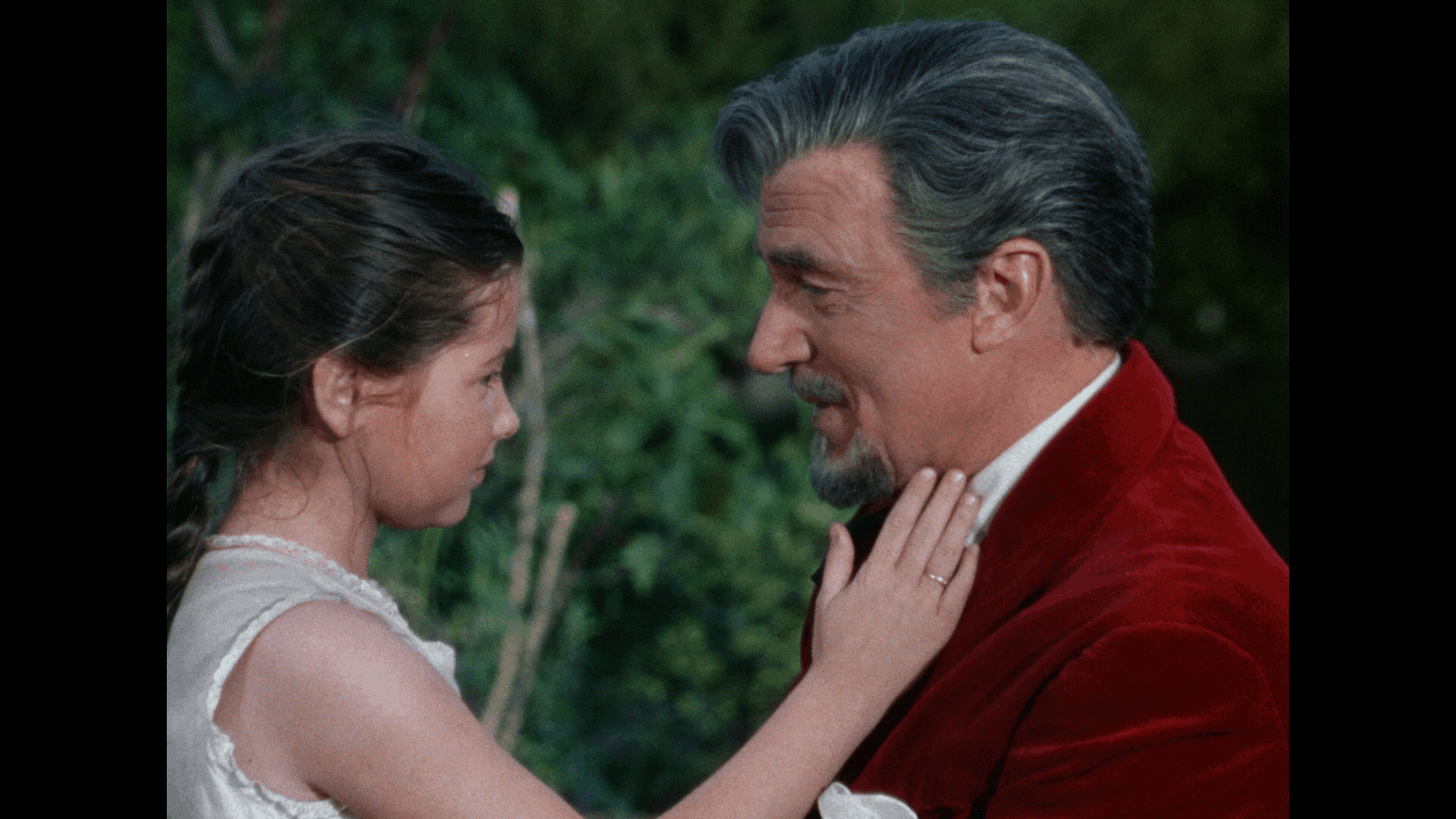
Airplane is how I learned that Esther Williams existed. Yes, I know that it was Ethel Merman in a cameo in that 1980 comedy classic. But, I used to get people confused when I was a kid. That’s when an older mentor figure made me read The Million Dollar Mermaid. After getting through half of a book about Esther Williams, I got it.
That’s right, I never went back and finished the rest of the book. What’s funny is that while reading the book and later documents about Kellermann’s views on this movie, I was struck odd. Kellermann wanted Million Dollar Mermaid to be staged like The Red Shoes. Esther Williams wanted a star vehicle to show off her other talents to Hollywood.
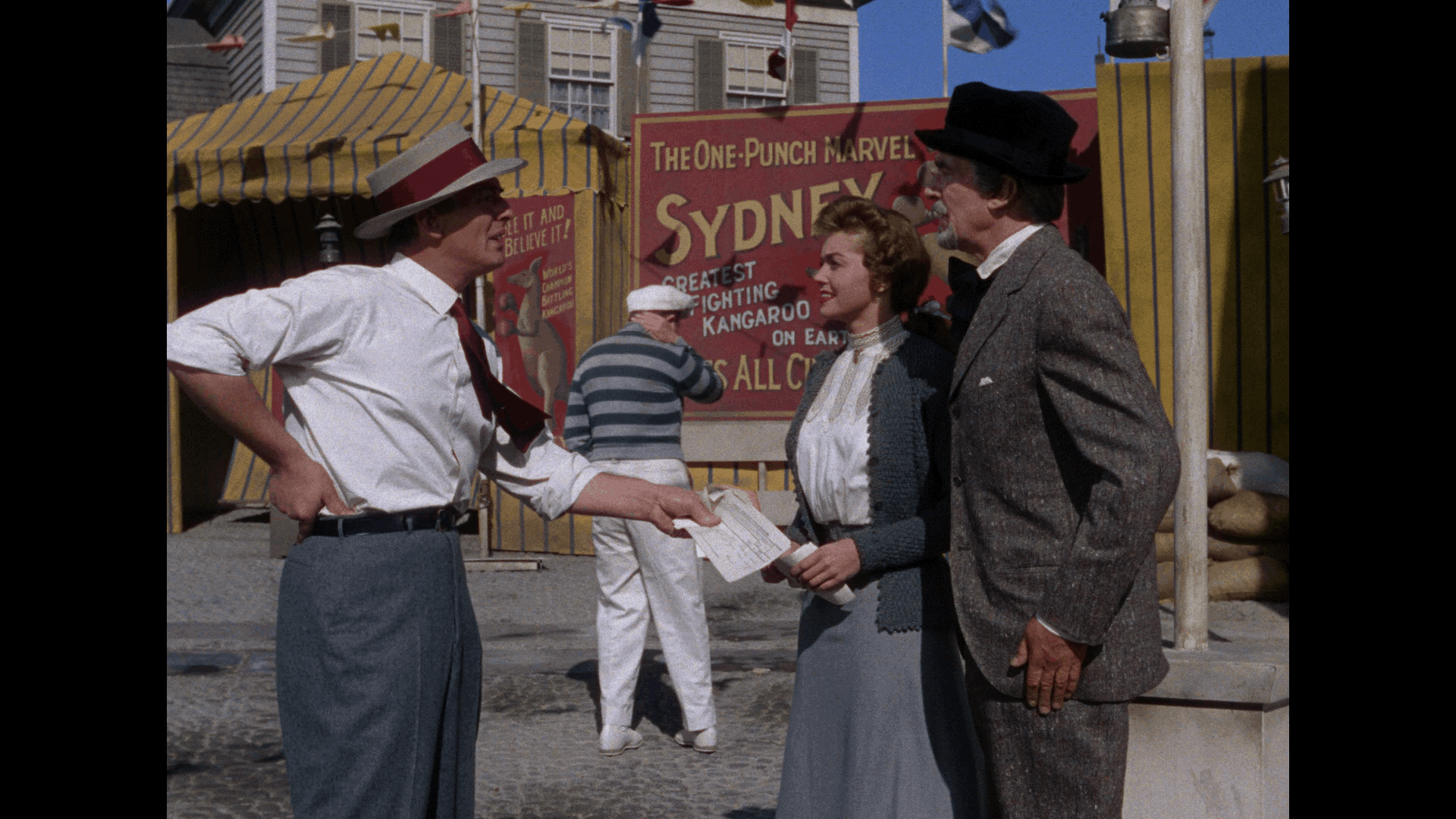
In that sense, Williams watered down the movie (hold for pun related groan) to create a bland melodrama. Annette Kellermann was a bad ass lady who became the first actress to stage a nude scene in a feature film. Williams just wanted people to think of her as more than the lady swimmer. But, what’s weird is how much their lives overlap in the film.
Williams, Kellermann and even Rin Tin Tin were stunt performers in two distinct ages of Hollywood development. Outside of recorded sound and Technicolor, very little had changed for performers. The Silent Era and the Hollywood Golden Age both saw actors as tools to hammer out a story. If an actor or actress got big enough, then that added weight could be manipulated for promotion.
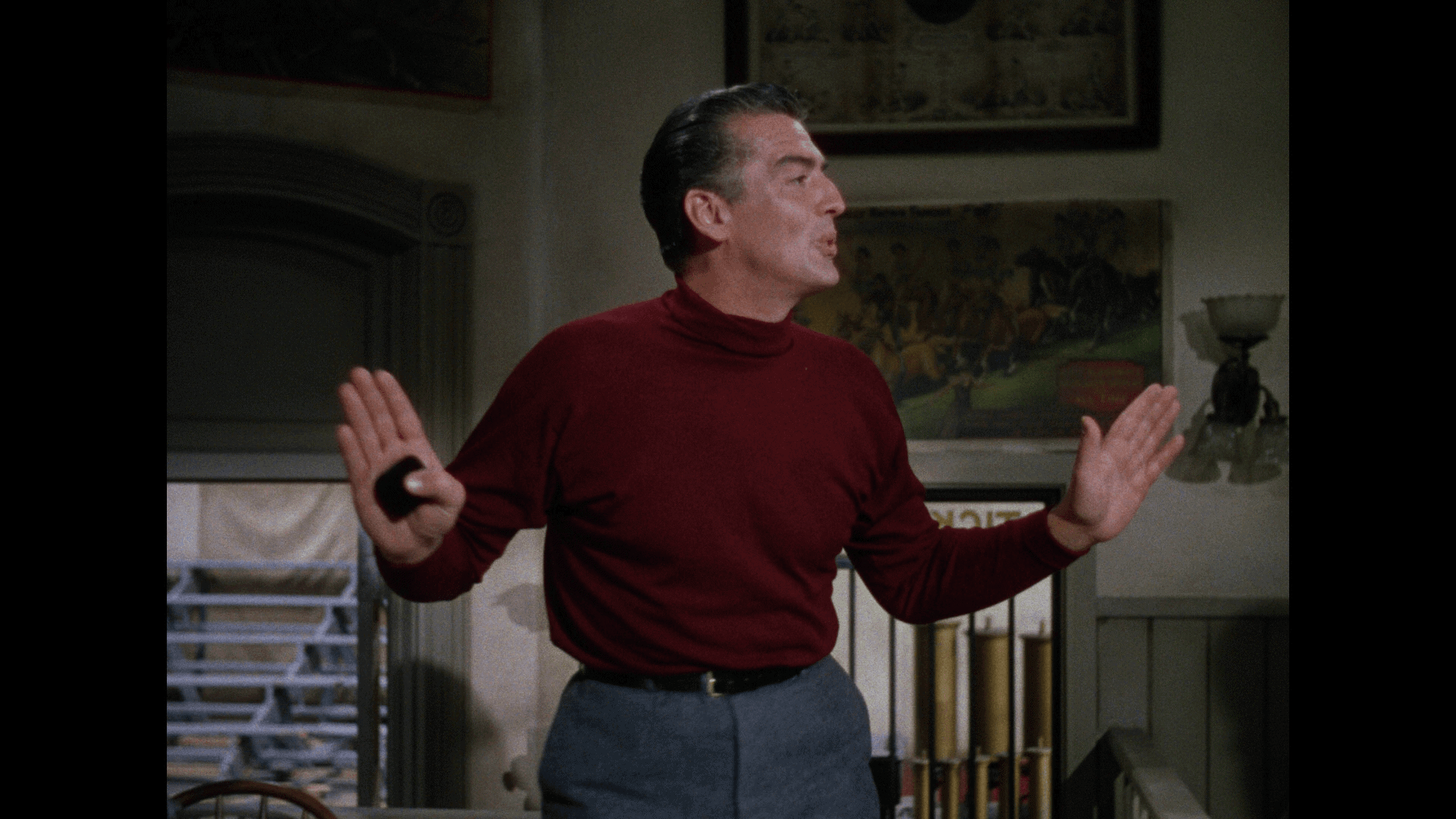
The rest of the film is a stock romance that glosses over a lot of the real lady’s life, so that 1950s audiences could awe to some melodrama. For a film that plays near two hours, the only thing that sticks in the mind is the Berkeley designed water numbers. Given the time, people really didn’t dig on the real Kellerman or Kellermann’s life. They wanted Million Dollar Mermaid to be a movie about pretty ladies doing water tricks.
Knowing some of the history behind the woman and seeing the subtext of the film, it’s almost insane that no one really tried to mine this movie. I put the blame for that squarely on director Mervyn LeRoy’s shoulders. Sure, he’s an easy punching bag for movie historians, but the guy’s career is laden with a lot of movies that should’ve been better.
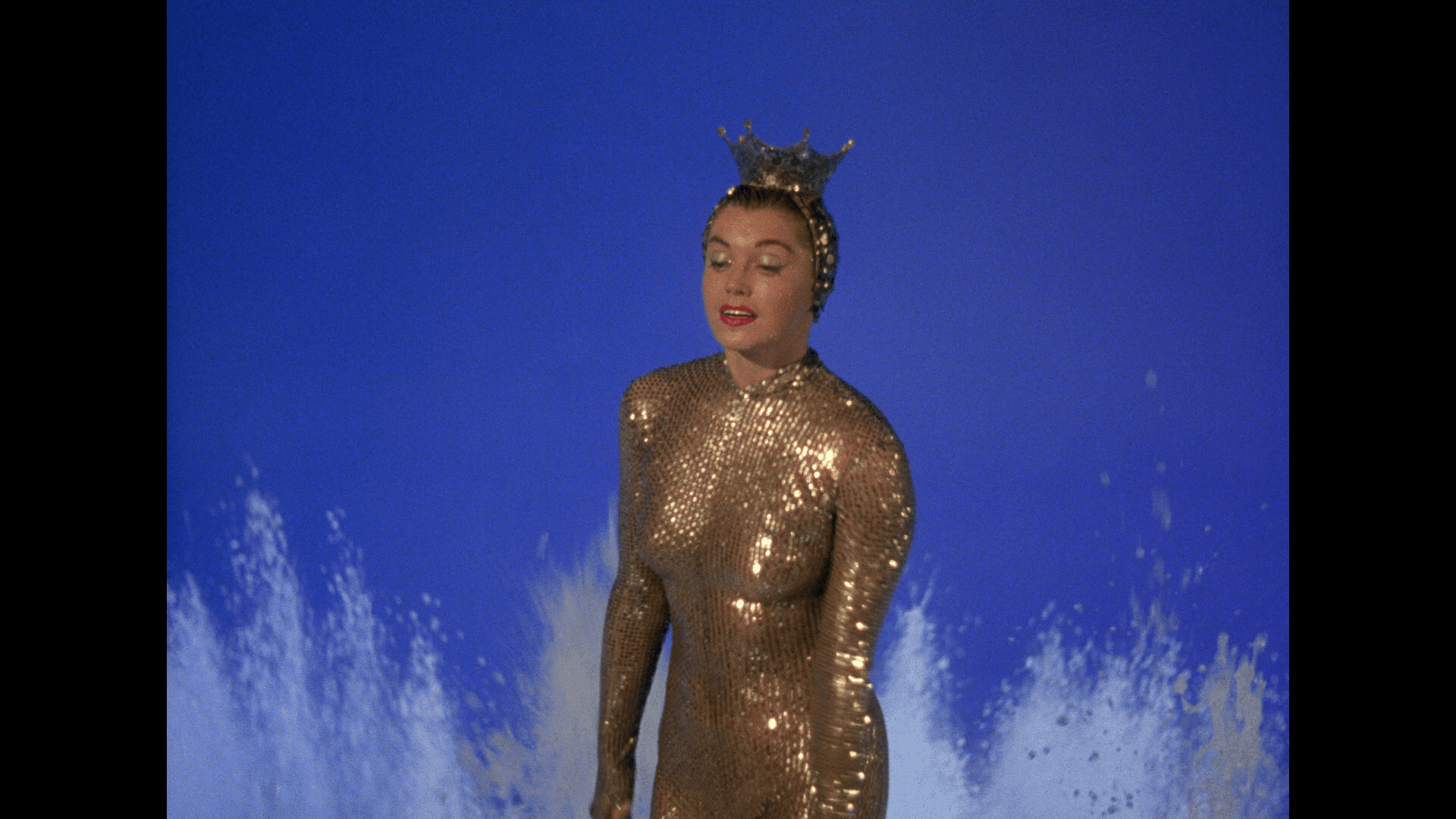
Quo Vadis, Mister Roberts, No Time for Sergeants and The Bad Seed are all LeRoy movies that go to 9 and never go to 10. It wasn’t like he was going to get any creative pushback on Million Dollar Mermaid, he was a former Head of Production for MGM and had married into the Warner family. LeRoy was connected and nobody was going to override him.
There’s a fine line between auteur and journeyman. Just having a hot take and not listening to others only creates genius work when the vision is there. But, what happens when it’s just good enough to pack a few weekends? It’s a fascinating concept that is as relevant now as it was in 1952. When is a singular version creative vs. adequate? Thanks for sticking that one in my head, Million Dollar Mermaid.

The Blu-ray comes with vintage shorts and cartoons. You get a trailer and audio from the promo efforts to get Million Dollar Mermaid in front of more eyes. Warner Archive does amazing work uncovering these gems. I just feel like a box set could help give context to a movie like this. If you dig biopics, then pick it up.
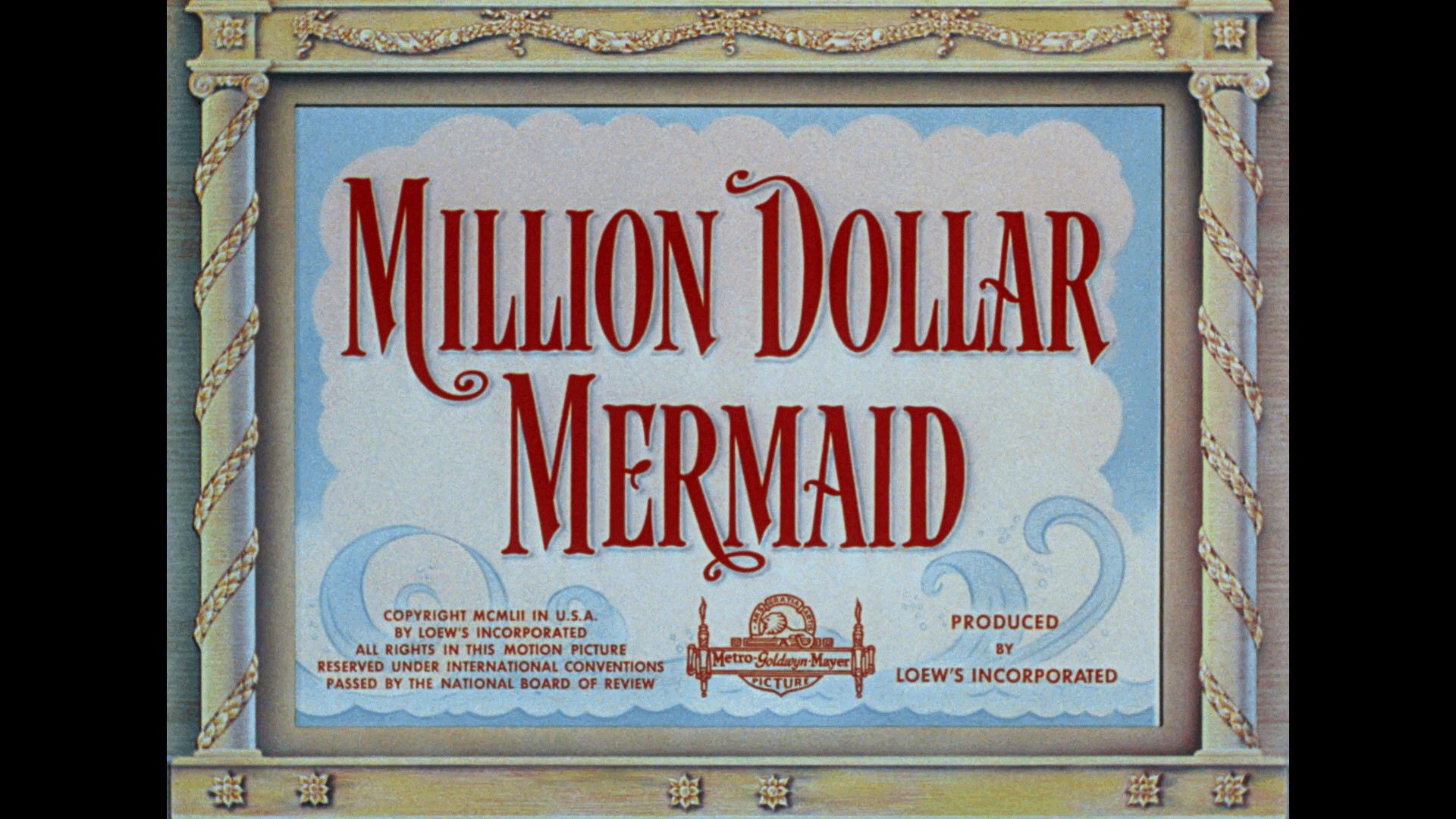
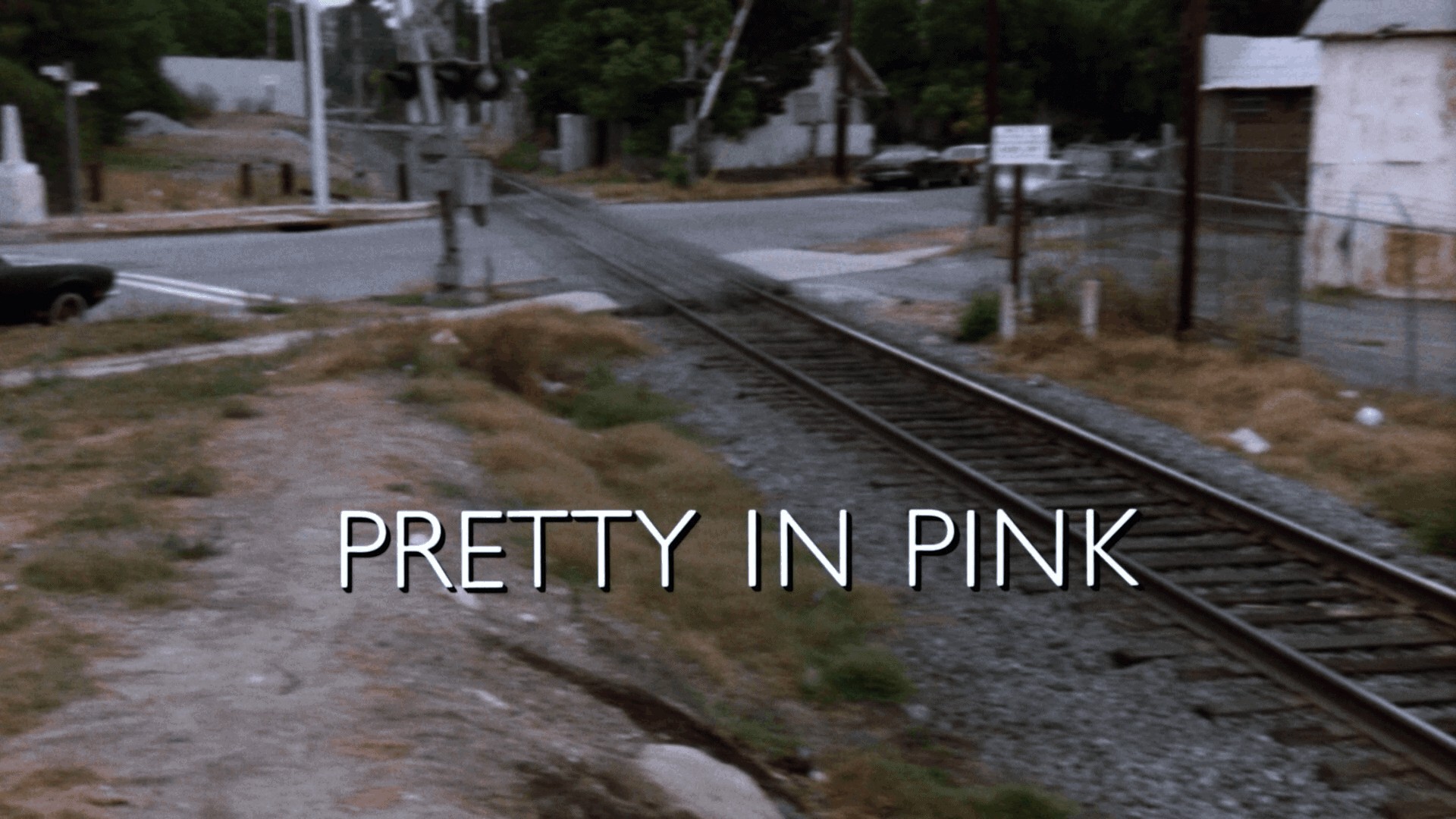

[…] Warner Archive brings Pride and Prejudice to Blu-ray to celebrate its 1940 iteration. You get the Oscar nominated short film Crime Does Not Pay. That’s not a big deal to a lot of people, but getting it in HD is quite the deep dive and makes me proud of the solid work at Warner Archive. You also get another short film and classic cartoon. Toss on a trailer and this is the best package of the 1970 Pride and Prejudice you’re ever getting. […]